Inguinal Hernia- Meaning, Symptoms, Causes and Treatment
Inguinal hernias are the most common type of hernia, also called Groin hernia, wherein the bulge can be seen on the sides of the pelvic bone. The groin is the area between the thigh and the stomach, inguinal means inside the groin. It is the inguinal canal where the inguinal hernia occurs.
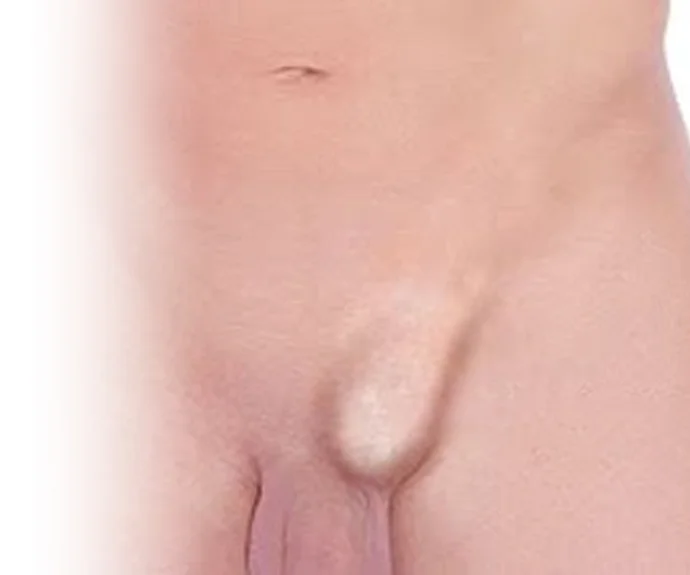
WHAT IS INGUINAL HERNIA
An inguinal hernia is a type of hernia wherein a portion of the intestine protrudes or squeezes from the weak abdominal wall.
An inguinal hernia may result in a visible lump or bulge present on either one or both sides of the groin region. It can cause pain while bending, coughing or lifting something heavy.
These types of hernias are more common in males than females. It has also been seen that they develop in infants, especially premature babies. It becomes very crucial to undergo surgery in most cases of patients with an inguinal hernia to prevent further health complications.
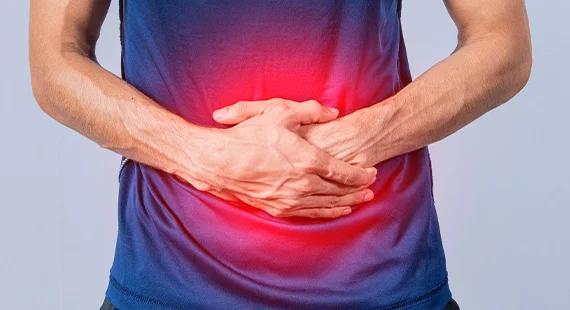
TYPES
Direct Inguinal Hernia
Type of hernia that forcefully goes through the wall of the inguinal canal. This usually occurs due to the weakening of muscles around the abdomen or excessive pressure put repetitively on the abdominal wall.
1
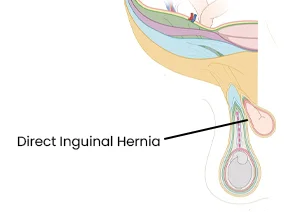
Indirect Inguinal Hernia
This type of inguinal hernia reaches inside the abdomen through the top opening of the inguinal canal. It occurs primarily in babies because of birth defects.
2
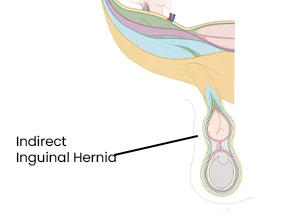
CAUSES
- Weakened spot in the abdominal wall
- Birth defects
- Intense straining while pooping or peeing
- Heavy lifting exercises
- Pressure while coughing
- Pregnancy
- Obesity that causes intra-abdominal pressure
SYMPTOMS
- Small Lump in Abdomen or Groin
- Discomfort and Pain in Abdomen & Groin
- Discomfort while Coughing & Sneezing
- Constipation
- Problems in performing Physical Activities
- Discomfort in Walking & Sitting
- Disappearing Lump when Laid
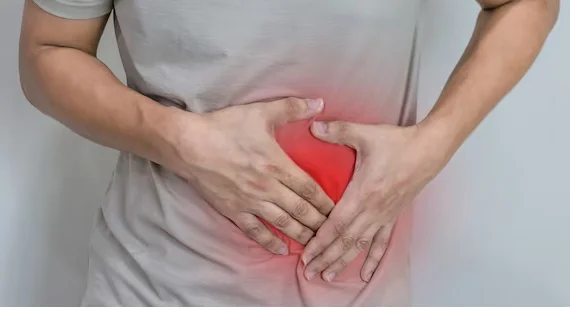
DIAGNOSIS
Physical examination
The doctor will initially take up a physical test to examine the bulging and can ask to give a few coughs to see the severity of the condition.
Imaging tests
Further, apart from a physical examination, for proper diagnosis of the condition, the doctor will ask for some general scanning test reports such as a CT scan, Ultrasound, or MRI. Thus, this clear diagnosis will help to identify the severity of the case and plan out the treatment accordingly.
DO's
DONT's
TREATMENTS
NON-SURGICAL TREATMENTS

There are some non-surgical therapy alternatives for hernias, such as medication and lifestyle adjustments. If a person is awaiting surgery or is deemed unfit for surgery, a corset, binder, or truss may be used to alleviate pain or suffering for a certain period. However, these are only temporary treatments because a hernia seldom heals without surgery.
SURGICAL TREATMENTS
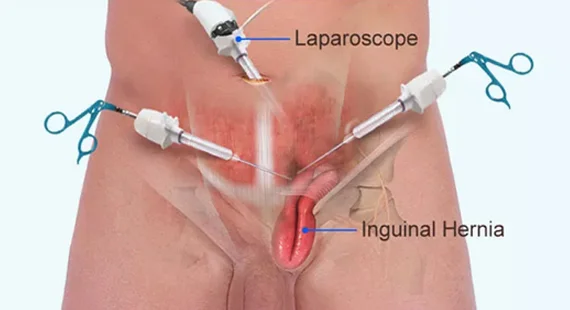
Open Surgery
Open hernia repair surgery is the most common type of hernia repair surgery performed around the world. The surgeon makes a cut or incision in the groin to identify the hernia "sac" containing the protruding intestine in an open operation for hernia repair. The hernia is subsequently pushed back into the abdomen, and the abdominal wall is stitched back. The surgeon may employ a synthetic mesh to tighten the closure through which the hernia protrudes if the opening is large.
Laparoscopic Surgery
This is a much more advanced procedure for treating inguinal hernias. Laparoscopic hernia repair surgery, often known as minimally invasive surgery, is a surgical method that uses small incisions rather than a major incision to repair a hernia.
Robotic Surgery
Robotic Hernia Repair Surgery is quite similar to a laparoscopic hernia repair surgery in that it employs a laparoscope to guide the surgeon to inspect and repair the hernia inside the belly. The use of the robot provides superb three-dimensional views of the inside of the belly, allowing the surgeon to repair the abdominal wall with minimum stitches and artificial mesh.
RISKS AND COMPLICATIONS
Complications associated with Inguinal hernia:
- Blockage of bowel movement
- Enlargement of the hernial sac with time
- The tissue may stop receiving blood
- Nausea
- Intense pain
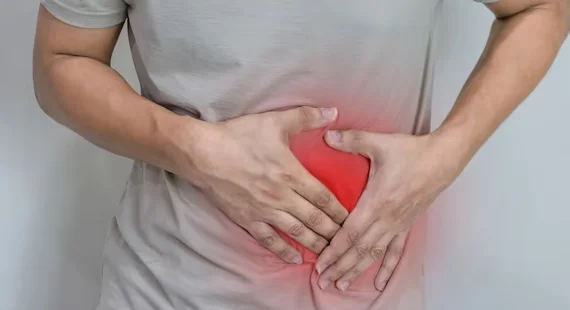
IF LEFT UNTREATED
If left untreated, a hernia can block the muscular tissues from the inside, blocking blood circulation in the tissues and resulting in life-threatening complications such as strangling or imprisonment.
When the intestine becomes caught in the inguinal canal, symptoms such as nausea, fever, blood in the feces, vomiting, stomach pain, and a painful lump in the groin may occur. Such situations are life-threatening and should be treated as medical emergencies.
COST
The cost of a laparoscopic hernia surgery varies depending on many criteria, including the type of hernia, the severity of the condition, and the length of stay in the hospital. A laparoscopic hernia repair procedure might cost anywhere from ₹ 50,000 to ₹1,00,000.
Financial Options

INSURANCE COVERAGE
The surgical treatment for inguinal is covered under health insurance. Most of the time, the insurer will cover a particular amount for the surgery. However, the amount of coverage depends on the type of policy. It is important to know that treatments other than surgical treatment for inguinal hernia will not be covered under your insurance.

Doctors
View AllKnow more about Inguinal hernia
The inguinal hernia has become commonly detected in most cases. Learning about it in detail can help prevent complications.
Some of the common causes and risk factors associated with Inguinal hernias:
- Weakened abdominal wall This is generally the primary cause of an Inguinal hernia. When the stomach due to weakness creates a bulging around the abdominal wall.
- Birth defects Inguinal hernia can be the ultimate cause of complications at the time of birth. It is when the baby might be born with an unexpected weak spot or an opening.
- Heavy lifting exercises Men often get diagnosed with a hernia due to their regular habit of lifting heavy weights. This gives a lot of pressure and strain on the abdomen area and results in a hernia.
- Pregnancy Women with pregnancy can have various medical complications during those months, including a hernia. But, if the proper care is taken from the starting stage this can be taken under control.
- Excessive straining Pressure can be due to many day-to-day activities and heavy lifting exercises. These ordinary movements that can result in inguinal hernia are bending, excessive stretching, putting pressure on the abdomen and
- Pressure while coughing When the throat is blocked, a person naturally coughs multiple times in a day. This can lead to pressure on the stomach and later result in an Inguinal hernia.
- Chronic obesity Having an imbalanced body weight or having overweight can cause an Inguinal hernia and affects the abdomen muscles.
Some of the generally detected symptoms of inguinal hernia through which the diagnosis is made are discomforting feeling, fluctuating or constant pain, pain while coughing or giving pressure to the abdomen area, making excessive body stretches, bending, or lifting heavy objects. If you are facing any of the symptoms or multiple symptoms, you must consult the doctor and learn about Inguinal hernia, its symptoms, causes, types, complications, prevention, and treatment. The doctor will make the appropriate diagnosis and will let you know if you require hernia surgery. There are various treatment options know the best suitable treatment for your condition - open surgery or laparoscopy surgery with Glamyo experts.
At Glamyo Health, we perform hernia medical procedures laparoscopically with the help from expert surgeons. Hernia Treatment Cost in Delhi ranges between Rs.55000 to 90000. Before you proceed with your surgery, listen to our hernia surgery patients who went through a smooth and hassle-free surgical procedures. Glamyo Health provides the most advanced laparoscopic hernia surgery across India. It is performed by highly skilled and extensively trained hernia specialists.











 New Delhi
New Delhi  Bangalore
Bangalore  Mumbai
Mumbai  Hyderabad
Hyderabad  Pune
Pune  Chennai
Chennai 
